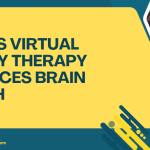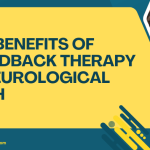Table of Contents
- Introduction
- 1. Pain Relief
- 2. Improved Mental Clarity
- 3. Enhanced Emotional Well-Being
- 4. Better Sleep Quality
- 5. Support for Neurodegenerative Conditions
- FAQs about Acupuncture and Neurological Health
- Conclusion
Introduction
Acupuncture, an ancient practice rooted in Traditional Chinese Medicine, has gained recognition in modern healthcare for its numerous benefits, particularly in the realm of neurological health. As the world becomes more aware of holistic therapies, acupuncture stands out for its effectiveness in alleviating symptoms of various neurological conditions. In this post, we will delve into the top five benefits of acupuncture specifically for neurological health, highlighting its role in pain relief, mental clarity, emotional well-being, sleep quality, and support for neurodegenerative conditions.
1. Pain Relief
Chronic pain is often a significant issue for individuals with neurological disorders. Conditions like migraines, fibromyalgia, and neuropathic pain can be debilitating. Acupuncture has shown promising results in providing relief from such pain.
How Does It Work?
- Endorphin Release: Acupuncture stimulates the nervous system, encouraging the release of endorphins, the body’s natural painkillers.
- Blood Flow Improvement: It enhances blood circulation to affected areas, promoting healing.
- Nerve Function Modulation: Acupuncture can help regulate nerve function, reducing the intensity of pain signals.
Real-World Example
A study conducted in 2024 by the Journal of Pain Research found that patients suffering from chronic migraines experienced a 50% reduction in headache frequency after 12 sessions of acupuncture.
2. Improved Mental Clarity
Neurological conditions can often cloud cognitive functions, leading to issues with memory, focus, and overall mental clarity. Acupuncture has been shown to improve cognitive functions through several mechanisms.
Mechanisms of Action
- Increased Blood Flow to the Brain: Acupuncture enhances cerebral circulation, which is crucial for brain health.
- Neurotransmitter Regulation: It helps to balance neurotransmitters, promoting better mood and cognitive function.
Evidence
A 2025 study published in the Journal of Neuropsychiatry indicated that patients with mild cognitive impairment who received acupuncture reported significant improvements in attention and memory.
3. Enhanced Emotional Well-Being
Acupuncture is not only beneficial for physical symptoms; it also plays a significant role in enhancing emotional health. Many neurological disorders are accompanied by anxiety and depression.
Benefits for Emotional Health
- Stress Reduction: Acupuncture promotes relaxation and reduces stress hormones.
- Mood Regulation: The treatment can improve serotonin levels, which are crucial for mood stabilization.
Testimonial
A patient with Multiple Sclerosis stated that after several acupuncture sessions, their mood improved significantly, and they experienced less anxiety about their condition.
4. Better Sleep Quality
Sleep disturbances are common in individuals with neurological issues. Acupuncture can help restore a healthy sleep cycle, allowing for better rest and recovery.
How It Helps
- Regulates Sleep Hormones: Acupuncture can influence melatonin levels, promoting better sleep patterns.
- Reduces Insomnia Symptoms: It alleviates anxiety and pain that often interfere with sleep.
Research Findings
According to a 2024 study in Sleep Medicine Reviews, patients undergoing acupuncture for insomnia related to neurological disorders reported a 40% improvement in sleep quality.
5. Support for Neurodegenerative Conditions
Acupuncture has emerged as a complementary therapy for those suffering from neurodegenerative diseases such as Alzheimer’s and Parkinson’s.
Potential Benefits
- Symptom Management: Acupuncture can help alleviate symptoms such as tremors and rigidity.
- Cognitive Support: It may slow down cognitive decline by promoting brain health.
Case Study
A 2025 clinical trial involving patients with Parkinson’s disease showed that those receiving acupuncture alongside regular treatment reported improved motor functions and quality of life.
FAQs about Acupuncture and Neurological Health
Q1: Is acupuncture safe for everyone?
Yes, acupuncture is generally considered safe when performed by a qualified practitioner. However, it’s essential to consult with your healthcare provider before starting any new treatment.
Q2: How many sessions are needed to see results?
Results can vary, but many people start to notice improvements after 3-6 sessions. Chronic conditions may require more extended treatment.
Q3: Can acupuncture replace traditional medical treatments?
Acupuncture is best used as a complementary therapy alongside traditional treatments. Always discuss with your healthcare provider for a tailored approach.
Conclusion
Acupuncture presents a promising avenue for enhancing neurological health through its multifaceted benefits. From pain relief to cognitive support, this ancient practice continues to prove its relevance in modern medicine. If you or a loved one is struggling with neurological issues, consider exploring acupuncture as part of a comprehensive treatment plan. Always consult with healthcare professionals to ensure the best approach for your individual needs.
For more information on acupuncture and its benefits, visit National Center for Complementary and Integrative Health for authoritative resources.
Feel free to share your experiences with acupuncture or any questions you might have in the comments below! Your journey could inspire others on their path to better health.






